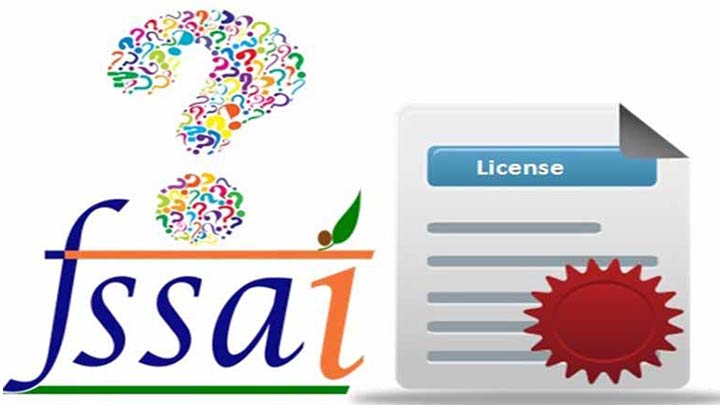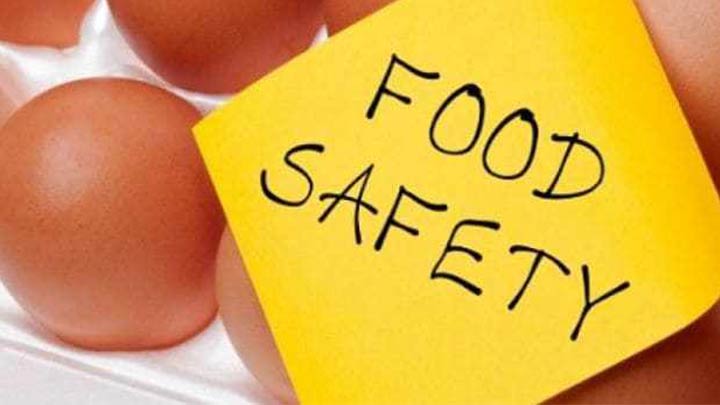To ensure that the food we eat is of standard quality and safe to consume, food manufacturers and sellers need to comply with certain food laws and rules. This is equally applicable for everyone who produces, trades or handles food.
Certain laws are in place to help consumers identify standard quality unadulterated food. This also greatly helps the government to ascertain that companies or manufacturers of food are not using harmful and unsafe practices to sell food to the consumer.
Different countries have a different complex set of rules and regulations that look after food quality and safety.
Globally, the Codex Alimentarius or the ‘Food Code’ developed by the Codex Commission along with the Food and Agricultural Organization (FAO) of the United Nations and the World Health Organization (WHO) have created a harmonized international food standards. This is strict to ensure fair trade practices and protect the health of consumers worldwide.
![what is fssai]()
What is FSSAI?
At the national level in India, the Ministry of Health and Family Welfare has set up a department called the Food Safety and Standards Authority of India, which is the full meaning of FSSAI.
As the name suggests, the full form of FSSAI is the Food Safety and Standards Authority is in place to check the quality and standard of food being manufactured, sold or handled in India.
When FSSAI started they had the authority to monitor the nutritional content and hence they do the duty of protecting consumers from consumption of toxic or hazardous food.
This is also the biggest authority under the government of India that guarantees that the Food Business Operators (FBOs) are strictly following food-related laws.
What is an FSSAI food License?
When it comes to food, the health of the public is at stake. There could be toxic or hazardous elements in our food which could put people's health at risk. Therefore, it is of utmost importance to regulate the food business practice by the Ministry of Health and Family Welfare. For effective regulation, the ministry has appointed several offices of the FSSAI.
These check the proper regulations and meeting of food standards and are spread all across India. Therefore, any small or large food business in India has to obtain permission from the FSSAI. This is to ensure that their business having a potential impact on the health of hundreds of people are safely monitored.
The FSSAI license or the food license is, therefore, permission from FSSAI to operate in the food industry.
![full form of fssai]()
Is the FSSAI license mandatory?
The FSSAI Act of 2006, under section 31 (1) clearly mentions that no person should start or carry on food business without an FSSAI license. If you are a small or big food business owner, you need FSSAI license which will be equally helpful to you, as it is for any consumer of the food that you are producing or selling. The numerous benefits of gaining an FSSAI license include the following –
-
Legal Advantage: Before getting into the food business, the cost of obtaining your license is lesser as compared to potentially paying huge penalties in case you get caught later for not abiding by the law prescribed.
-
Using FSSAI Mark: You may have already known that good quality gold is certified with the help of BIS hallmark. Similarly, good food is certified with the help of an FSSAI mark. One can see this logo on almost 90% of the food sold in supermarkets. The only food material that is out of the scope of the FSSAI is seafood and grains/produce that come from farmers. You can use this mark to build your credibility in the market.
-
Business expansion and finances: With time, if you plan on increasing the scope of your business in different states or even need a bank loan for the same, it is extremely easy to do so with an FSSAI license.
-
Consumer awareness: You can let your consumer know that the food that you are producing/handling or selling is of the highest quality and is approved by the government. This helps the consumers to have trust in you. Additionally, even if you are a small restaurant owner or a larger company like Britannia, it is easy to function with a license. Most of us are already aware of the plight when Maggi lost its reputation in the market. The license for manufacture was suspended for a period of time until a complete investigation was carried on.
-
Avoiding penalties: It is important to understand that the aim of the FSSAI is to ensure consumption of safe and quality food by the public. The FSSAI has also established a number of laboratories across the country to test the nutritional levels of food particles. At any point of time, if your establishment can be checked randomly and if your establishment is found to be operating without a license, heavy penalties are imposed on the business.
Due to the above reasons, it is extremely essential to register your food business with the FSSAI. Obtain your license to gain consumer confidence.
![need fssai license]()
Is the FSSAI license required if you’re selling food from home?
The Food Safety and Standards Act, 2006, under Section 31 (2) mentions that petty manufacturers who manufacture food by themselves or are small hawkers or vendors with tiny stalls do not need a license to operate. But at the same time, if you are a hawker or a vendor, you would need to register with other appropriate authorities in the state.
This regulation, along with Section 69 of the Act mentions that even hawkers or vendors need to take appropriate care to ensure that food is safe and of standard quality for the consumption of a consumer.
If at any time, a food vendor or manufacturer is found to violate this law of fair practice, even if you are a petty manufacturer, any officer with appropriate authority can impose heavy penalties upon you.
Therefore, even though the law doesn’t mandate a license if you’re a very small business, it is still good to register your business for your own credibility.
What is an FSSAI License Number?
An FSSAI license is a 14-digit number. This is granted to any food business operator who registers their food business. Like we have the AADHAR number for the identification of a person, we have the FSSAI license number for the identification of a food business owner.
The five-part division of the 14-digit number consists of different indications for each part. This includes complete information regarding a food business operator and helps the authorities distinguish one FBO with another. Find the explanation of the five different parts of the number below:
-
Part 1 [First Digit] – Information about the FSSAI status or the registration status of the food business. This indicates the registration status of a food business.
-
Part 2 [ Digits 2 and 3] – This part explains the State code where the food business is operational
-
Part 3 [ Digits 4 and 5] – This part is for indicating the year of manufacture of the particular food product
-
Part 4 [Digits 6, 7, 8] – These digits are for a quantity of enrolling master
-
Part 5 [Digits 9-14] – And finally, these are the Permit Number of the maker
Apart from this, there are basically three types of FSSAI registration, as mentioned below. They also have a different set of forms for each type of registration:
-
Basic registration,
-
State registration and
-
Central registration.
One requires these different licenses for these different types of registrations to run a particular food business operation.
![fssai number checking]()
How to check status of FSSAI license online?
FSSAI number checking:
The web link to check FSSAI license number online is here.
For your FSSAI license check, you can enter your 14-digit FSSAI license number in the blank which is mentioned as “Enter License/Registration No.” and it will display something similar to the following:
This includes the complete details of the food business operator as shown in the picture above. By this, you can check and track FSSAI license online.
How much time will it take you to obtain your FSSAI license?
For a basic FSSAI license, it takes only about 3-4 working days. However, it takes about 30-60 days for an FSSAI state license approval. And, up to 30 days to obtain a Central license.
Validity of an FSSAI license
Depending on the type of FSSAI license that you’ve applied for, you may have 1 to 5 years of maximum validity. You need to fssai license renewal before 30 days of the expiration of the current license for your business's smooth functioning.
Transferability of an issued FSSAI license
In case of death of an FSSAI license holder, the license can be transferred to his or her legal representative. Or, any other family member of the deceased person.
The next person, who wishes to hold the license, under his or her name has to apply for verification. After the verification process, the application may be approved. In case of refusal, the applicant will get an opportunity to state the reason for the refusal of the particular transfer.
![check status of fssai]()
Who can Help You?
If you need in-depth information regarding food safety regulations and licenses, or you need to consult an expert lawyer regarding any query with respect to your food business, MyAdvo, a legal tech facilitator helps you with this.
Not only does MyAdvo let you find a lawyer anywhere in India online, but it helps you with all or any questions on food-related laws. We can help you with the appropriate kind of licensing and registration/renewal for your food business. Or, any other related issues that you may be facing on an everyday basis. With the use of technological solutions, MyAdvo matches your requirements with the lawyer based on expertise, location, etc.
All you have to do is connect with us at support@myadvo.in or call us at +91-9811782573 and express your concerns right away and we’ll look into the rest.






